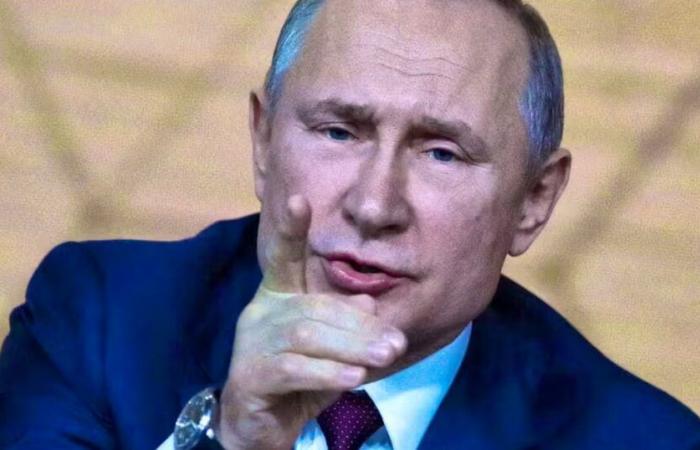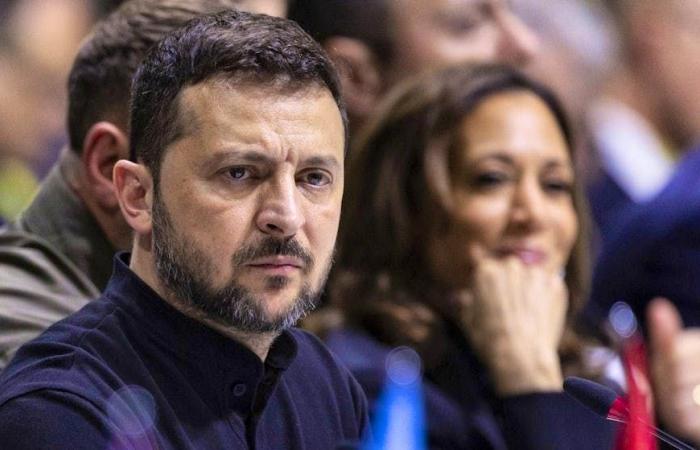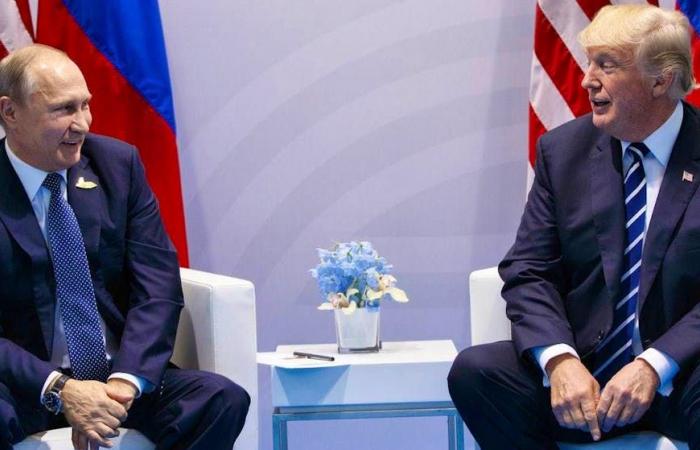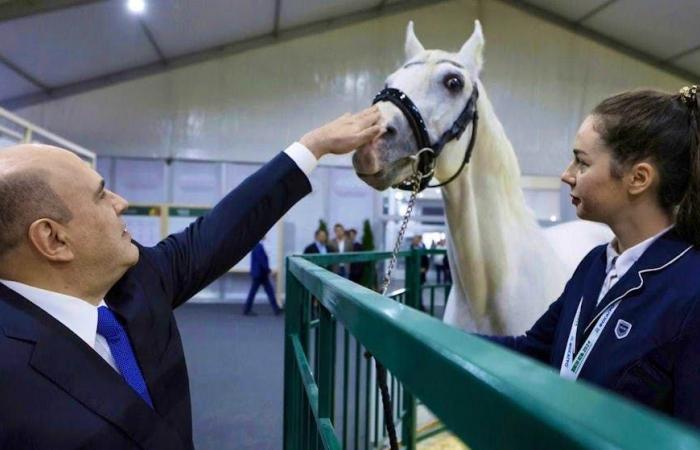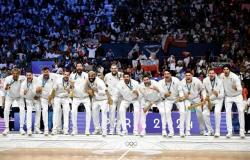Vladimir Putin’s war economy is in “bad shape,” Russian expert Ulrich Schmid explains to blue News.
Keystone
About the person
zVg
Ulrich Schmid is professor of Russian culture and society at the University of St. Gallen, specializing in Russian media theories and nationalism in Eastern Europe. The Zurich resident has taught or teaches at the universities of St. Gallen, Bern, Basel, Bochum and Oslo.
Business bankruptcies, layoffs and price increases. What is the situation of the Russian economy?
The Russian economy is currently in difficulty. Putin likes to boast about figures that, on paper, show astonishing economic growth and low unemployment in Russia. But if we look more closely, we have to put a big question mark behind these numbers.
In what sense?
The low unemployment rate can also be characterized as a shortage of skilled labor, and economic growth is mainly fueled by the booming arms industry.
Food prices are rising: could this become a problem for Putin?
Yes, Putin must ensure that the economic situation does not deteriorate rapidly for consumers. First there is the rise in food prices. The situation is even worse in the real estate market. The record key rate has also made mortgages enormously more expensive. And we also see that the Kremlin is well aware of this situation.
How do you see it?
There are special mortgages for volunteers who engage in military service in Ukraine, and this effectively attracts people. In the context of rising prices, this is attractive.
What about inflation?
Inflation is a problem the central bank has been battling since the open invasion of Ukraine. We would like to get to 4% or 5%, but for now, it seems that 8.5% inflation is more likely for Russia towards the end of the year. Meanwhile, some predictions indicate that this ambitious inflation target will only be achieved in 2026. When it comes to inflation, it can be said that it acts as a general tax on consumption and wealth.
Putin has shifted to a war economy: can he even afford to make peace now?
Given the tense economic situation in Russia, a peace would suit Putin just fine, if it came on the Kremlin’s terms. Recently, Putin has spoken twice about these conditions. Once towards Orban, when he visited Moscow at the start of the Hungarian EU presidency. And a few days ago, during a telephone conversation with Olaf Scholz.
What do we know about this?
Essentially, what Putin said ahead of the Bürgenstock conference remains valid. It demands a de facto capitulation by Ukraine, an end to sanctions and recognition of Russia’s international borders. Facing Orban, Putin declared that at most we could discuss nuances. And facing Scholz, he felt that territorial realities had to be kept in mind.
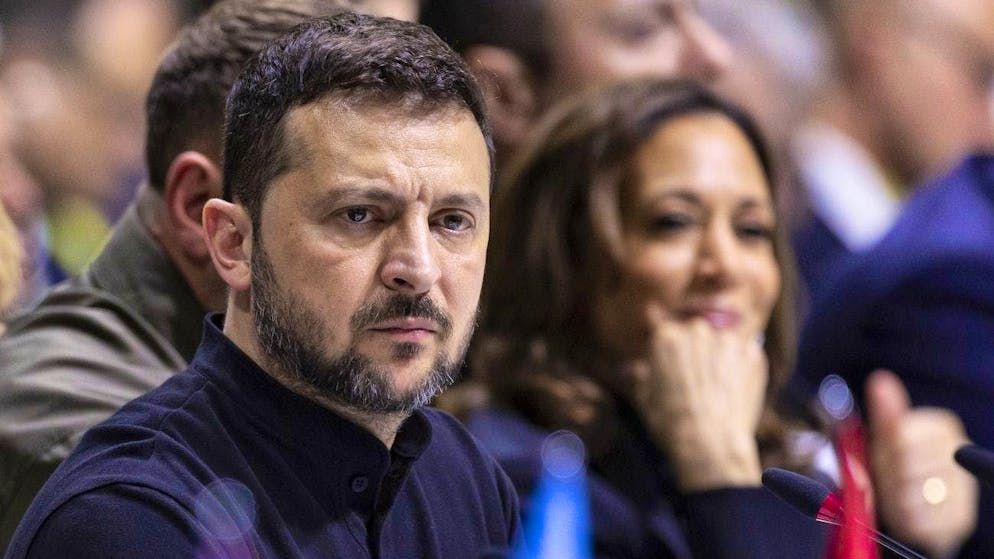
Image :
Keystone
How is the Kremlin proceeding in Ukraine after the American election?
For now, I read the Kremlin’s strategy as follows – and there are also corresponding rumors in Russia – they are trying to drive the Ukrainian army out of the south of the Kursk oblast by January 20. This is where North Korean soldiers are deployed. Meanwhile, there are rumors that more North Korean troops are expected to arrive in Russia. And if we now talk about the front line in Ukraine, of course it will be very difficult for Putin to deviate from his current position. In October 2022, he had in fact annexed the four oblasts of Donetsk, Luhansk, Zaporizhia and Kherson, without even fully controlling them militarily.
Are EU soldiers in Ukraine an option for Putin?
I think if it was done under a UN mandate and on Russian terms, Putin could probably accept it. This of course means that such a deployment would have to take place outside the borders that Russia has claimed for itself since October 2022.
Trump likes to play the strong man: doesn’t Putin risk attracting the wrath of the American president if he does not proceed as he wishes during the negotiations?
Yes, of course, that’s how it is. But on the other hand, the levers that Trump can pull against Moscow are relatively short. Economic relations between the United States and Russia were already much weaker before 2014 than between Russia and the European Union. This is why it has always been relatively easy for America to impose economic sanctions against Russia. Numerous sanctions have also played into the hands of the United States: The fact that many European countries no longer buy their raw materials from Russia has of course stimulated the American oil and gas economy.
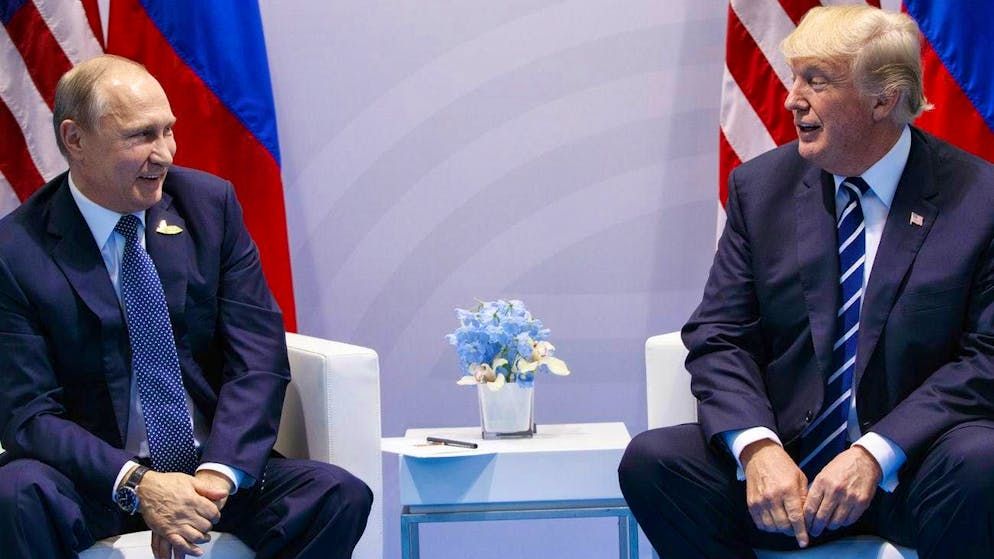
Image :
Keystone
Will Washington’s support for Ukraine permanently decline?
We now know in broad terms who will shape American foreign policy. For these politicians, as for Vice President JD Vance, Ukraine is actually a secondary issue. They are all focused on China. But the two are linked. If Ukraine now suffers a defeat at the hands of Russia, it will also be a strategic defeat for the United States, which has significantly supported Ukraine in recent years. And that would naturally make Washington appear weak in Beijing’s eyes. Even the Trump administration will seek to avoid this by all means.
Are there alternatives to Putin, or has he swept the field behind him?
He did not create a vacuum, but ensured that leadership positions were occupied by loyal people who at least accepted his aggressive course. If we look at Putin’s closest entourage, there aren’t really any enthusiastic warmongers. Take for example the one important figure that changed with Putin’s inauguration as president earlier this year.
This is the Minister of Defense…
Exactly, Andrei Beloussov is an economist who has no military training. Belousov represents on the one hand the militarization of the Russian national economy and on the other hand the economization of the Russian army. This means that Putin, with this appointment, mainly has efficiency considerations in mind.
And what else?
Longtime Prime Minister Mikhail Mishustin kept an extremely low profile and virtually never spoke out on the war. I think it is also significant of this agreement of silence between the ruling elite and the president, who decided on this war almost alone. Today we are trying to somehow continue this balancing act. Putin’s calculation is that he thinks he has the most breathing space in this war of attrition.
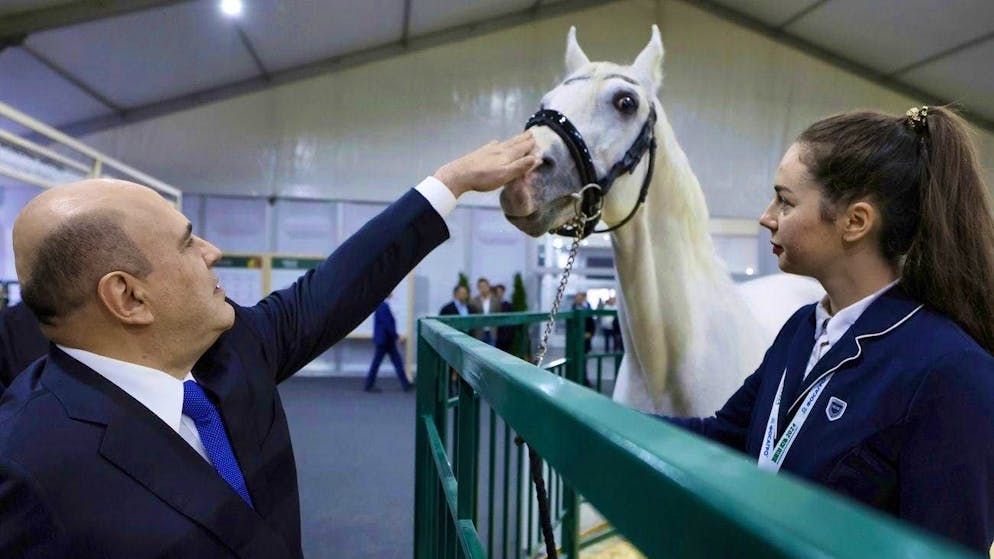
Image :
Keystone
Moscow says the United States would become a belligerent if it lifted restrictions on long-range weapons. Is this just rhetoric?
Washington’s announcement today mainly refers to the engagement of North Korean troops and the massive Russian attacks in recent weeks – since it has become clear that Trump will become president. Russia is currently trying to create facts that will appear immutable after Trump takes office on January 20. For now, however, it appears that both sides are trying to keep the ball on the ground. It was not Biden who personally communicated this authorization change. And in Russia too, this backlash came from a subordinate authority.
Who is Vladimir Putin?
Find out who Vladimir Putin really is: from his early days in the KGB to his rise to the presidency of Russia, including the key moments of his political career and the controversies surrounding his reign.
06.09.2024
What do you think are the chances that the war in Ukraine will end soon, or at least that a ceasefire will be reached?
It is difficult to say today what will change with a Trump presidency. In fact, there has been in America since 1799 what is known as the Logan Act, which prohibits private individuals from conducting negotiations with foreign powers. And Trump is a private person until January 20th. This means he can’t lean very far out the window at the moment.
What can he do?
For now, there are several scenarios. I think that an unmitigated reduction in US aid to Ukraine is rather unlikely – precisely because an uncontrolled withdrawal would undermine the desired US position of strength vis-à-vis China. On the other hand, it is also clear that Trump will try to somehow extricate himself from this impasse. But who should step into the breach? Germany and France are very weak at the moment. There is simply no actor who could fill the void that a US withdrawal would open.

